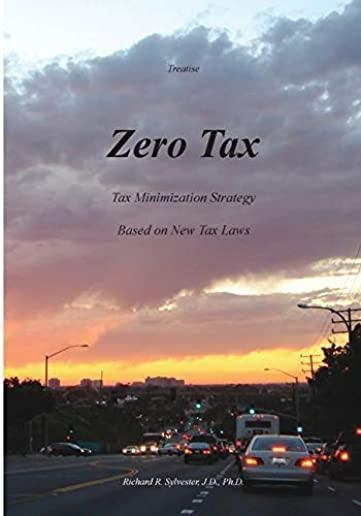
This treatise is a detailed discussion of how taxpayers with very high wages can reduce their income tax to zero based on prudent investment strategy, to qualify for tax credits and one-year depreciation. Exhibits show actual tax returns with high income and zero taxes. The author is a mathematical economist, with a J.D. and a Ph.D., listed for three decades in Marquis' Who's Who in the World. He has served leading tax attorneys, billionaires, and Fortune 500 companies. He was retained by the IRS for as an expert witness for several of their largest tax cases. The book provides insights and clear explanations of practical methods to reduce your income tax, based on investment incentives in the new tax code.
This book clearly explains the strategy and investment approaches used by prudent investors to reduce and even completely eliminate federal income tax. The book shows how to harness the tax code to operate a small business to produce tax credits for research in new software and scientific research. The book shows how to use joint ownership of real property with related parties to increase family wealth. The methods are based on detailed calculations based on artificial intelligence software.
The book explains the strategy and tactics for active investments in small family-owned business and short-term real property rental that can result in substantial wealth. The book explains why securities are questionable investments, because securities have restricted financial leverage, have no depreciation, and have no tax credits.
The appendix data shows the rapid increase in real property price, the steady inflation over the past century, wide fluctuation in securities prices, projections of the federal budget, and life expectancy. Prudent investors expect a substantial increase in real property value, based on continued inflation. Prudent investors also expect wealth tax, excise taxes, and a pending economic recession. The book includes a discussion of foreseeable changes in federal tax law.
Based on fundamental factors, prudent investors are expected shift investments from securities to real property, and to transfer assets to related parties to increase family wealth and to reduce exposure to the anticipated wealth tax. This book explains relevant code sections, and shows how to translate plans into actions that can result in a substantial reduction in income tax based on carefully planned investments.
member goods
listens & views

MEMORIES OF OLD BROADWAY / ...
by MEMORIES OF OLD BROADWAY / VARIOUS (BOX)
COMPACT DISCout of stock
$21.99






